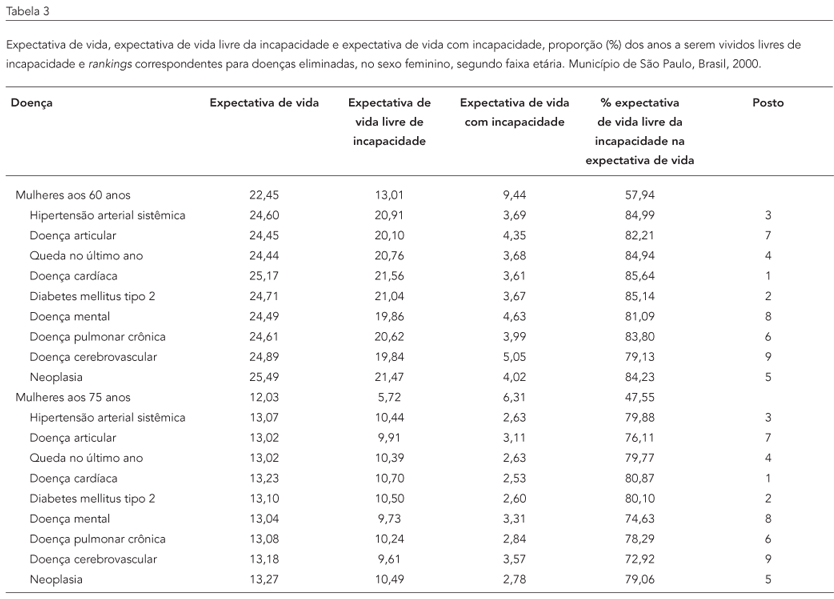This study evaluated the impact of the elimination of certain chronic illnesses on disability-free life expectancy in the elderly population. This was a cross-sectional survey based on official data from the city of São Paulo, Brazil, in 2000, and from the SABE study. Cause-deleted probabilities of dying were derived with the cause-elimination life-table technique. Eliminated diseases that generated the largest increase in disability-free life expectancy in women were heart disease, diabetes mellitus, and hypertension (in that order). In men, eliminated diseases that generated the largest increase in disability-free life expectancy were, at 60 years, heart disease, hypertension, and falls, and at 75 years of age, heart disease, hypertension, and chronic lung disease. Classification of chronic diseases according to impact on disability-free life expectancy can assist the planning of preventive programs and health promotion.
Health Transition; Chronic Disease; Active Life Expectancy; Aged





